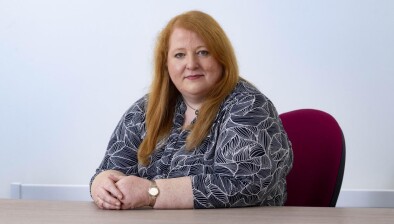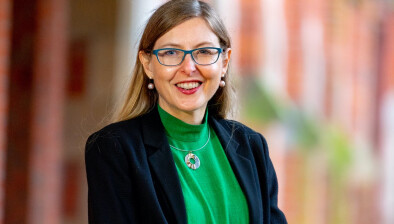NI: Judiciary ‘must provide leadership to overcome political stalemate’

Northern Ireland’s judiciary must provide leadership to overcome the political stalemate that has paralysed devolution, leading legal figures heard in the Royal Courts of Justice in Belfast yesterday.
The 2017 Belfast Homecoming Legal Symposium was jointly organised by the Bar of Northern Ireland and leading firm KRW Law.
Addressing the symposium, the Lord Chief Justice of Northern Ireland, Sir Declan Morgan, said Northern Ireland’s judiciary found itself in a unique position in the absence of a Minister for Justice since the collapse of devolution in January.
Niall Murphy, partner at KRW Law, said Sir Declan is a source of “legal certainty and stability in the absence of political leadership”.
Sir Declan said that while the public have historically been sceptical of various aspects of the Northern Irish state, the judiciary has traditionally enjoyed a high level of public confidence. With low public confidence in a power-sharing executive’s ability to act on legacy cases, Acht na Gaeilge, abortion and marriage equality, many are looking towards the judiciary to provide leadership where the politicians have not.
While recognising that while tradition dictated that the judiciary should not involve itself in setting public policy, Sir Declan said that the European Convention of Human Rights means it is now a fact that the judiciary is often drawn into the realm of policy. He said: “An independent judiciary need not be isolated from the political sphere.”
Citing the impact of UK Supreme Court decisions on issues such as abortion, gay blood donations, and adoption as examples of judicial influence on public policy, he said that judges have been a positive influence in resolving contentious issues, while recognising that there is a need to “clarify where the constitutional boundary is”.
In fact, the judiciary will be addressing a prominent controversy imminently. The Supreme Court will meet next year in the exact same venue as the Symposium to consider the “gay cake” case, in which the owners of Ashers Bakery refused to bake a wedding cake with pro-marriage equality text on it on the basis on their Christian beliefs.

The symposium went on to hear from experts on three of the most contentious issues currently in need of address in Northern Ireland.
Professor Kieran McEvoy of Queen’s University Belfast addressed the conference in the manifold failures of the body politic to implement a clear plan for addressing legacy cases.
He spoke of the inadequacies of the “piecemeal approach” taken by Northern Ireland’s politicians to legacy cases. and presented a model bill for the implementation of the Stormont House Agreement, which was intended to comprehensively address legacy cases but has not been acted upon since it was signed in December 2014.
Also speaking of legacy issues, Professor Mark McGovern of Edgehill University Liverpool laid out in frank terms the failures of successive British and Northern Ireland governments to address cases which involve allegations of collusion between security forces and paramilitary organisations.
In particular, he criticised the De Silva report, which he says employed such a narrow definition of collusion as to “define collusion out of existence”. He cited the definition used by Police Ombudsman Dr Michael Maguire in the recent report into the 1994 Loughinisland Massacre as a more acceptable working definition.
Speakers also addressed two “Northern Ireland anomalies”, whereby it remains the only jurisdiction in the UK and Ireland not to have marriage equality or language protection on the statute books.
Speaking for Conradh na Gaeilge, Ciarán Mac GiollaBhéin and barrister Aidan McGowan condemned opposition to an Irish Language Act (or Acht na Gaeilge) as putting Northern Ireland out of step with the rest of the UK, pointing to the success of both the Welsh Language Act 1993 and Scotland’s Achd na Gáidhlig (Alba) 2005 in protecting and promoting their respective native languages.
Ciaran Moynagh of McLernon Moynagh Solicitors spoke of the political impasse that has left Northern Ireland the only jurisdiction in Britain and Ireland without marriage equality legislation. Highlighting the divergence between public opinion and political discourse, he told the symposium that a recent survey has shown that 70 per cent of public in Northern Ireland support marriage equality. Mr Moynagh also spoke of the unsuccessful judicial challenges in both the European Court of Justice and the domestic UK courts to this anomaly.
Kevin Burns, Irish Legal News









